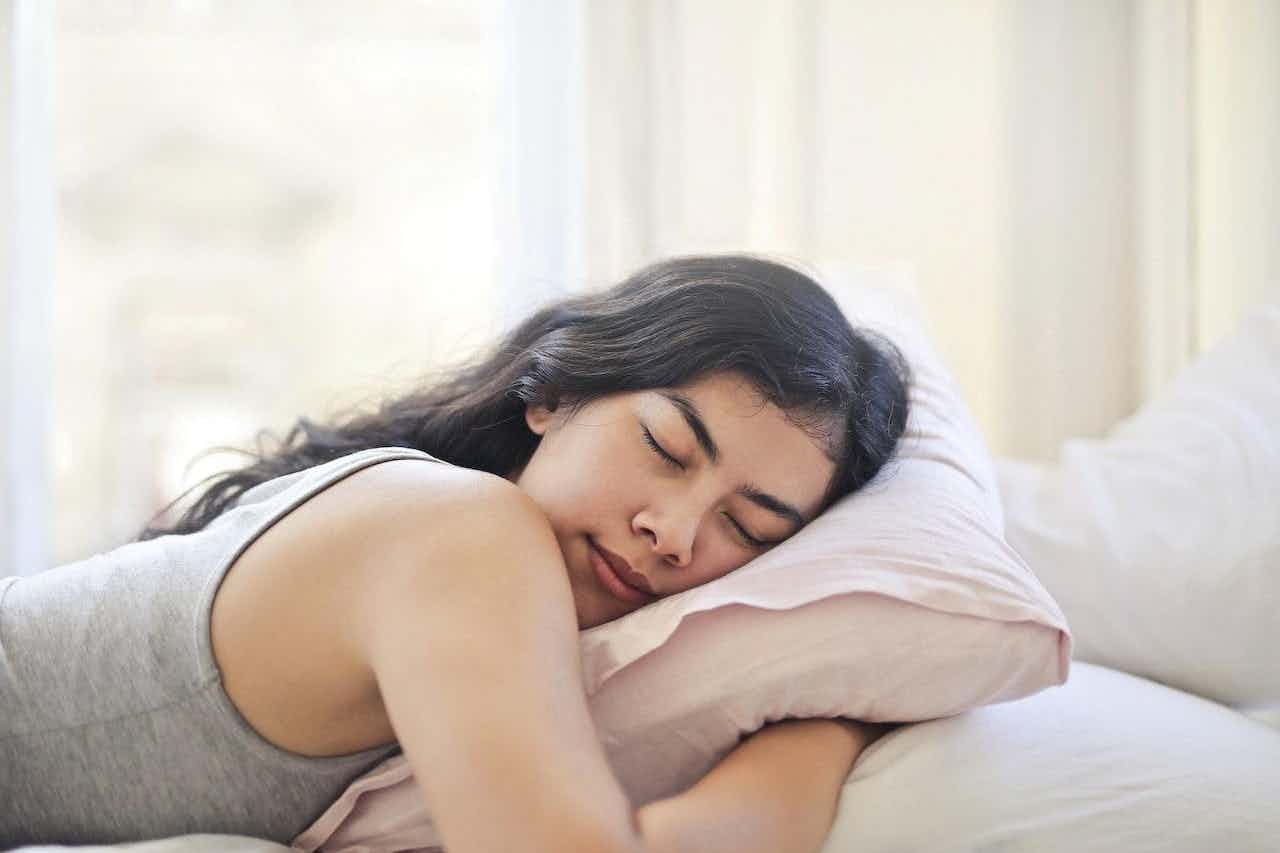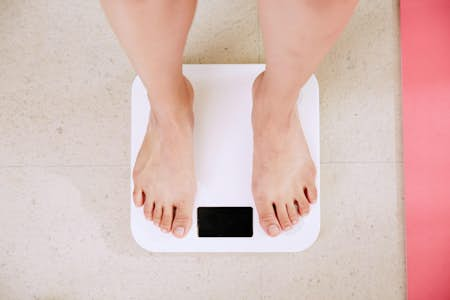Sleep is such an essential part of everyday life, so ensuring that our bodies get the rest they need can help play a vital role in feeling refreshed, relaxed, and ready for the day ahead.
What are the stages of sleep?
The sleep cycle has four main stages:
- Stage 1 - N1
- Stage 2 - N2
- Stage 3 - N3
- Stage 4 - REM
Each of the four stages of sleep includes differences in muscle tone, brain wave patterns, and eye movements. The first stage of the sleep cycle occurs when we first fall asleep and is known as N1. This phase usually lasts between one and seven minutes. It is where the body and brain activities start to slow with periods of brief movements. The next stage is N2, where the body is in a more sombre sleep state which includes more relaxed muscles, slower breathing and heart rate, and a lower body temperature.
REM (rapid eye movement) sleep is the fourth stage of the sleep cycle and is quite well known as the vivid dreaming stage. REM sleep usually lasts between 10 and 60 minutes, when our brain activity, breathing, heart rate, and blood pressure increase, and our eyes move rapidly while closed. REM sleep makes up around a quarter of our total sleep. It is essential for enhancing our brains' cognitive powers, such as those associated with problem-solving, memory and creativity.
N3 sleep, the third stage of the sleep cycle, is what we are focusing on here, as it is during this phase that our bodies go into deep sleep. During this stage, involuntary body functions like breathing and heart rate slow down, and our muscles relax. It can be difficult to wake someone up during this stage of sleep, and waking someone out of deep sleep may make them feel mentally foggy for up to an hour. Deep sleep is the last stage of NREM (non-rapid eye movement) sleep before we complete the nightly sleep cycle by entering rapid eye movement (REM) sleep when dreaming occurs.
What are the benefits of deep sleep?
Whilst all stages of sleep are necessary for maintaining our overall health, deep sleep provides certain benefits that other parts of the sleep cycle do not. In general, this stage of sleep allows our brains to rest, recover, and replenish energy. It also plays a role in strengthening declarative memory or remembering facts.
Increases growth and cell regeneration
The pituitary gland releases human growth hormones during deep sleep, which helps our muscles, tissues, and cells grow and repair themselves. Deep sleep also allows more cerebrospinal fluid (CSF) to pass into our bodies, which helps clear away cell waste and washes away toxic proteins linked to Alzheimer's disease from neurons in our brains.
Increases immune system support
During deep sleep, our bodies produce a protein called cytokines. This protein targets infection and inflammation to create an immune response against pathogens like viruses and bacteria. Our bodies also produce T-cells, white blood cells that are vital to our body's immune response to an infectious disease such as Covid-19.
Regulates glucose levels and metabolism
During the deep sleep phase, blood sugar levels surge, known as the dawn effect. In a healthy person, insulin can manage the rush of sugar by ensuring the muscle, fat, and liver cells absorb the glucose from the blood, keeping levels stable and maintaining metabolism. In fact, studies show that sleep deprivation can alter the glucose metabolism and hormones involved in regulating metabolism, which could increase the risk of diabetes or weight gain.
Increases energy levels
ATP (adenosine triphosphate) is one of the main molecules found in our bodies that stores and transfers energy in cells. Whilst in the deep sleep phase, also known as slow-wave sleep, our bodies enhance the ability to make and release ATP, which leaves us feeling refreshed and energised during the day.
What are the dangers of not getting enough deep sleep?
Since deep sleep plays such a vital part in our sleep quality and overall health, not getting enough of it can cause signs and symptoms to start showing up.
The first symptom caused by a lack of deep sleep is fatigue. A lack of energy and motivation during the day can cause slower reactions, a reduced ability to process information, and decreased awareness.
Also, because deep sleep plays such a vital part in our memory formation process, it may be difficult to consolidate memories after nights without enough of it. You may experience difficulty learning or remembering information even after one night of insufficient sleep.
Physically speaking, deep sleep deprivation is linked to a wide range of health problems, including high blood pressure, poor balance, low sex drive, poor immune system and weight gain.
Sleep deprivation is also associated with hormonal changes that drive our hunger and appetite. Poor quality or the absence of deep sleep can increase our cravings for high-calorie foods. In the long term, it is believed to contribute to insulin resistance and the development of type 2 diabetes and heart disease.
The following signs may be indicators that you are not getting enough deep sleep:
- Feeling unrefreshed and drowsy
- Reduced alertness and attention
- Feeling irritable
- Having trouble learning and forming new memories
- Cravings for high-calorie food
How can I increase my deep sleep?
One of the best ways to get more deep sleep is to ensure you get enough overall sleep every night. Seven to nine hours of sleep every night is optimal for most adults. Any less than that, and you may start to feel the symptoms listed above. Any more than that may lead to symptoms of excessive sleeping, such as anxiety.
Having a calming bedtime routine
A bedtime routine includes all of the things that you do leading up to falling asleep. The benefits of this include helping your brain differentiate the day from the night, clearing your mind and body of the day's stresses, calming yourself down mentally and physically, and falling asleep peacefully.
Bedtime routines will look very different from person to person, depending on what calms and relaxes you the most. The great thing about bedtime routines is that they are customisable and personal. You can make your bedtime routine as short or as long as you wish, adding activities and preferences that suit you.
Everyday bedtime routine activities may include:
- Taking a warm bath
- Journaling
- Reading a book
- Meditation
- Listening to an audiobook or music.
Avoiding looking at bright screens beginning two to three hours before bed can also help you to fall asleep faster. This is because blue light can trick the brain into thinking it's daytime and stops the release of melatonin, the body's natural sleep hormone. As melatonin is our body's natural way of helping us wind down and become sleepy, a lack of it can delay you falling asleep.
Sleep Consultant Heather Dent agreed, telling Health Times: "The hormone that we need to produce to fall asleep more easily and maintain our sleep is Melatonin. One of the ways in which our busy lifestyle suppresses the production of this hormone is through the use of screens. Our phones, laptops, tablets etc produce blue light which restrains the production of Melatonin. Hindering your circadian rhythm (sleep-wake cycle) like this makes it not only difficult to fall asleep but also to wake up the next day."
Exercising
Exercising in itself has many benefits both for our bodies and minds. Working out at least once or twice a week has been proven to lower the risk of diseases like cancer and diabetes, manage body weight, strengthen bones and muscles and improve our quality of life.
Exercising also improves sleep for many people. Taking part in medium to high-impact exercise can increase sleep quality by reducing the time it takes to fall asleep. Physical activity can also help to fight fatigue and sleepiness during the day and improve overall mental well-being.
Using relaxation techniques
Life can be hectic, sometimes making us feel stressed and anxious. These feelings can make sleeping difficult and impact how much deep sleep we get. By adding relaxation techniques into your day, you can help to reduce any stress you may be feeling and sleep more deeply.
Relaxation techniques are plentiful and can be as simple as deep breathing or more mindful such as yoga and meditation. These mind and body practices can naturally reduce anxiety and improve sleep. Other relaxation exercises can include taking a bath, reading, or listening to quiet music before bedtime. Avoiding discussing or thinking about stressful topics before bed can also help you get better sleep quality.
See a doctor or another healthcare professional if stress and anxiety do not improve with self-care or if it significantly affects your life beyond sleep.
Going to bed at the same time
The brain begins slowing down in preparation for sleep a few hours before bedtime as part of its natural sleep-wake cycle. Setting a consistent bedtime routine can help enhance the time between being awake and asleep.
By deciding on a bedtime and wake-up time and following them regularly, you can help to train your brain to feel sleepy at those times. Try to choose bed and wake times that best suit your schedule and stick to them every day, including at weekends.
You can also schedule a time to begin your nightly bedtime routine. This can range anywhere between 20 minutes to two hours before bed, depending on how you like to unwind. In the morning, you can set an alarm to help you wake up at a consistent time every day.
Avoiding or limiting caffeine and alcohol
Caffeine and alcohol reduce sleep quality, affecting the amount of deep sleep you get. Caffeine is in drinks such as coffee, tea, and fizzy drinks, as well as in chocolate and blocks sleep-promoting receptors in your brain called adenosine receptors. This helps keep you alert and awake, which is the opposite effect you want if you want to get more deep sleep.
Alcohol can affect sleep by influencing the circadian rhythm. The circadian rhythm is the body’s natural 24-hour cycle, a significant part of which the body releases melatonin hormones to prepare for sleeping. A sleep study has found that drinking alcohol before bedtime lowers melatonin levels and affects core body temperatures, impacting sleep quality.
Having a light snack
Heavy meals, caffeinated drinks and alcoholic beverages before bed not only disrupt your sleep cycle but can also cause indigestion, acid reflux and bathroom trips that disrupt your sleep. On the other hand, going to bed hungry can make it hard to fall asleep.
Instead, you can find a healthy middle ground by soothing your stomach with a light snack. Certain foods are associated with improved sleep quality, which all have one thing in common; they contain an amino acid called tryptophan, which is proven to enhance sleep quality.
Examples of bedtime snacks and drinks include:
- Fruits such as kiwi, grapes and bananas
- Non-caffeinated herbal teas
- Nuts
- Toast
- Greek yoghurt
- Popcorn.
Some people also find that taking a sleep medicine or supplement before bed, such as melatonin or magnesium, can help them to get a good night's sleep.
Keeping a comfortable sleeping space
Having a calm and comfortable space suited to your sleeping preferences is vital to getting more deep sleep. Most people prefer to keep their bedrooms cool, dark and quiet for optimal sleep quality, as loud noises and bright lights can make it difficult to fall asleep. Ear plugs, sound machines, and blackout curtains may help you if you live in noisy or bright locations.
Your sleep habits will ultimately determine how you keep your sleeping space; however, you may wish to consider the following tips:
- Turning off any noisy electronics
- Dimming the lights
- Pulling down the curtains
- Putting things away and removing clutter
- Switching on a white noise machine
- Enjoying your favourite scent with an aromatherapy diffuser.
Maintaining sleep hygiene is also essential for falling into a much deeper sleep. Investing in a good quality mattress, bouncy pillows, and soft sheets can significantly contribute to how comfortable your sleep environment is.









